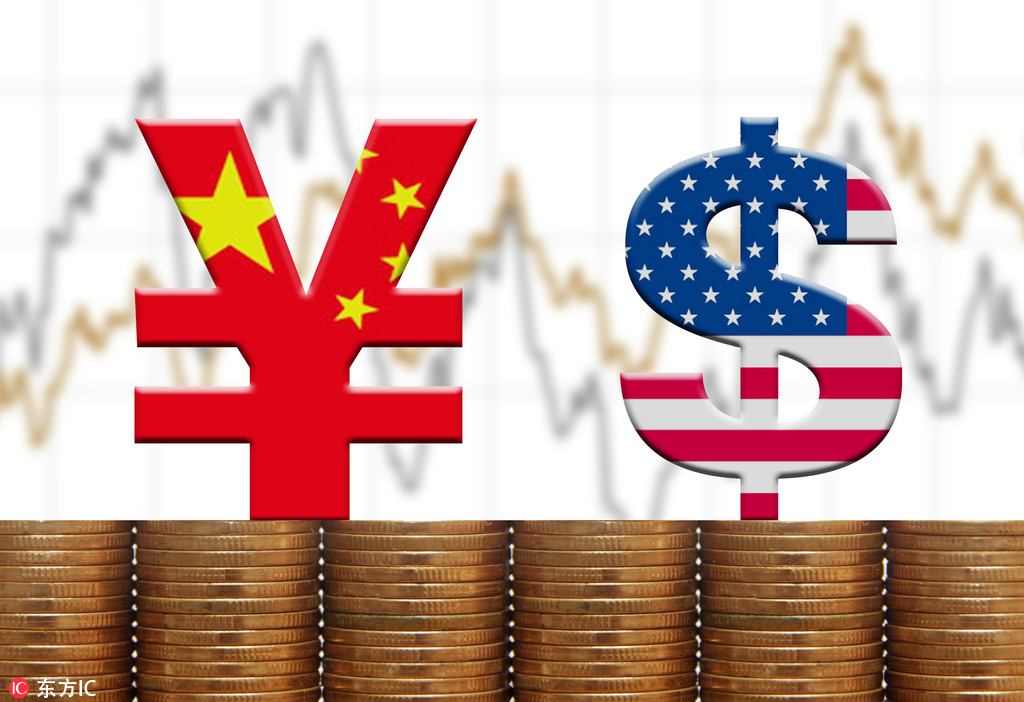Trade is 'ballast stone' of relations

A delegation of Chinese scholars visited Washington and Chicago this week to stress the importance of stable relations between China and the US during an entrenched trade standoff.

"As the top two economies, both countries shoulder key responsibilities for global stability and prosperity," Xie Fuzhan, president of the Chinese Academy of Social Sciences, said at a conference on Sino-US economic and trade relations and the global economy in Washington on Monday.
"As the ballast stone of China-US relations, economic and trade relations concern the well-being of our two peoples and bear on the direct interests of all peoples," Xie said.
Experts from both countries conducted in-depth dialogues on the escalating trade frictions.
The Chinese delegation of 10 scholars from think tanks traveled to Chicago on Wednesday.
Just before the event, the US government announced that it would impose 10 percent tariffs on $200 billion worth of Chinese goods effective Sept 24. The tariffs will be increased to 25 percent on Jan 1, 2019.
The delegation emphasized that the Chinese government's attitude toward the "unilateral provocation" of tariffs by the US has always been clear: China will continue to resolutely deepen reforms and expand opening-up at its own pace, to maintain healthy and stable economic development.
The delegation said that the US government's tariffs on Chinese goods will be counterproductive, which will be pointless in resolving the trade dispute and will weaken the rules-based multilateral trading system.
Both sides believe that to meet the needs of global economic development, the World Trade Organization needs further reforms, update international trade rules and improve dispute-resolution mechanisms.
The two sides also exchanged views on topics such as technology transfer, intellectual property protection and high-tech industrial policies.
The Chinese experts explained China's position of resolving trade disputes and attempted to clarify some misunderstandings by the US side on the development of China's high-tech industry.
The current trade war is not a benign competition, does not meet the fundamental interests of the two peoples, and the US will not be able to achieve its goals through trade restrictions, said the delegation. The US accusations against China neither conform to reality nor should they be a basis for launching a trade war, the scholars said.
China's reform and opening-up will help China-US economic and trade relations move toward a healthy development track, they said, adding that they hope the US will adopt measures of openness rather than protection.
Regarding the recent assertion that the Chinese and American economies could achieve "decoupling", the scholars stressed that it's hard to see the two economies decoupling under such a high degree of economic globalization and such close economic and trade links.
Jacob Lew, former US Treasury secretary, said that the path Washington should pursue is constructive engagement with Beijing to seek consensus and mitigate differences.
"In my view, the Trump administration tariffs are likely to make matters worse, and its rhetoric lacks the respect that we should show between two great nations," he said.
"But it is a moment when China needs to look beyond the rhetoric from the White House, and even the provocative trade policies, to find a way to demonstrate that real issues are being resolved," he added.
Adam Posen, a trade expert and president of the Peterson Institute for International Economics, explained that "the outright trade conflict seemingly imminent between the world's two largest economies will be harmful to the working people of both countries, as well as destructive to the future of the world economy".
"These costs would be both direct, in terms of short-term losses of growth and displacement of jobs, and indirect, in terms of long-term damage to the world trading system, diminishing investment and efficiency going forward," he said.




































